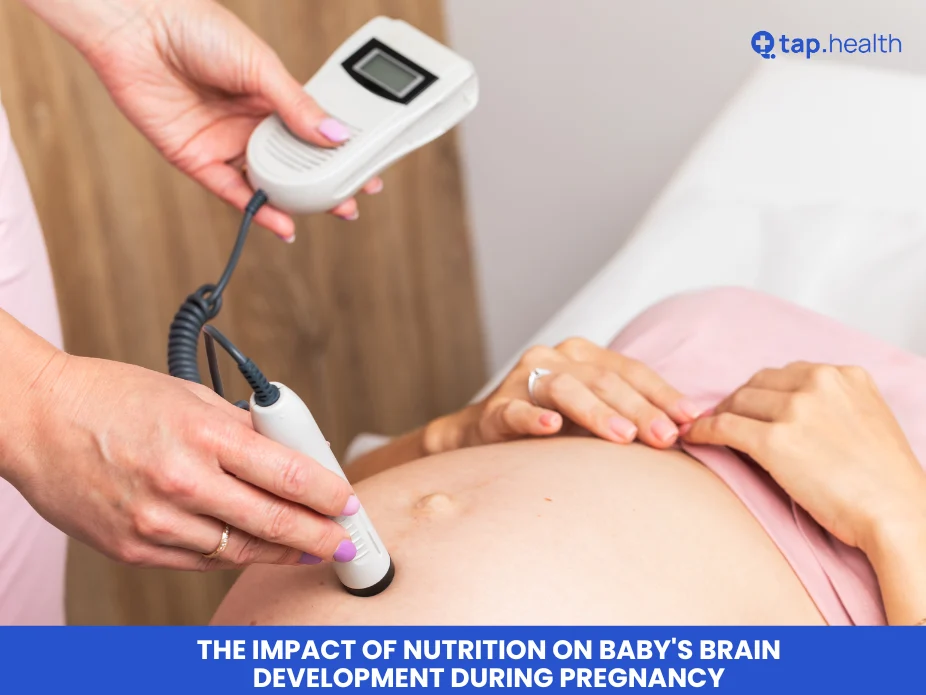How Does Nutrition Impact Baby’s Brain Development During Pregnancy?
Pregnancy is the most critical window for fetal brain growth. From the moment of conception, your diet directly influences how your baby’s brain forms, connects, and functions for life. Proper nutrition in pregnancy supports neuron formation, synaptic connections, and long-term cognitive health.
When Does Fetal Brain Development Actually Begin?
Brain development starts within days of conception. By week 4, the neural tube forms — the foundation of the brain and spinal cord. Rapid neuron creation peaks in the second and third trimesters, with the brain reaching nearly 80% of adult size by birth. Every trimester demands specific nutrients for optimal growth.
Top Nutrients for Fetal Brain Development During Pregnancy
1. Folic Acid – Prevents Neural Tube Defects
Folic acid (vitamin B9) is non-negotiable in the first trimester. It helps close the neural tube and reduces the risk of spina bifida and anencephaly. Daily need: 600–800 mcg Best sources: leafy greens, lentils, avocado, fortified cereals, citrus fruits
2. Omega-3 DHA – Builds Brain Cell Membranes
DHA makes up 40% of the brain’s polyunsaturated fats. It supports memory, learning, and vision development. Daily need: Minimum 200–300 mg DHA Best sources: wild salmon, sardines, trout, algae-based supplements, walnuts, chia seeds
3. Iron – Delivers Oxygen to the Growing Brain
Iron prevents maternal anemia and ensures oxygen reaches baby’s brain cells. Low iron is linked to preterm birth and developmental delays. Daily need: 27 mg Best sources: lean red meat, poultry, spinach, lentils, pumpkin seeds
4. Choline – Boosts Memory and Learning
Choline helps form acetylcholine, a neurotransmitter vital for memory. Higher maternal intake is linked to better cognitive outcomes in children. Daily need: 450 mg (550 mg if breastfeeding) Best sources: eggs (147 mg per yolk), chicken, beef liver, broccoli
5. Iodine – Supports Thyroid Hormones for Brain Growth
Iodine deficiency is a leading preventable cause of intellectual disability worldwide. Daily need: 220 mcg Best sources: iodized salt, dairy, seaweed, cod fish
6. Vitamin D – Regulates Brain Gene Expression
Vitamin D deficiency during pregnancy is linked to autism risk and lower IQ. Daily need: 600–2000 IU Best sources: sunlight, fatty fish, fortified milk, egg yolks
Real-Life Examples of Nutrition Making a Difference
- Priya started 800 mcg folic acid one month before conception. At her 12-week scan, the neural tube was perfectly closed.
- Neha disliked fish but took 300 mg algae DHA daily. Her twins scored higher on developmental milestones at 12 months.
- Riya battled fatigue in the second trimester. After treating iron-deficiency anemia, her energy returned and baby’s growth charts improved dramatically.
Expert Insight on Pregnancy Nutrition and Brain Health
Dr. Sarah Johnson, perinatal nutritionist, says: “A mother’s intake of DHA, choline, and iodine in the third trimester literally shapes how many neural connections her baby will have at birth. These are not optional — they are foundational.”
Practical Ways to Meet Brain-Boosting Nutrient Needs
- Start prenatal vitamins with active folate (5-MTHF) before conception
- Eat two portions of low-mercury fatty fish weekly or take a quality DHA supplement
- Include 2–3 eggs daily for natural choline
- Pair plant iron sources with vitamin C for better absorption
- Use iodized salt and check seafood for safe mercury levels
Common Questions About Nutrition and Fetal Brain Development
Q: Can I rely only on prenatal vitamins for brain nutrients?
No. Prenatal vitamins fill gaps, but real food provides co-factors and better absorption.
Q: Is it too late to start focusing on brain nutrients in the second trimester?
Never too late — the brain triples in size in the third trimester, so improvements still make a big difference.
Q: Do vegetarian moms need extra supplements for DHA and iron?
Yes. Algae-based DHA and a gentle iron supplement (with doctor approval) are usually recommended.
How Can TapHealth Help Manage Diabetes During Pregnancy?
Gestational diabetes can affect fetal brain development by causing blood sugar spikes. TapHealth’s 24/7 remote monitoring, AI-powered insights, and instant diet coaching help keep glucose stable — protecting both mom and baby’s long-term brain health. and a healthy brain for your baby.
References:
- American Pregnancy Association. (2023). Nutrition During Pregnancy. Retrieved from https://americanpregnancy.org
- Mayo Clinic. (2023). Prenatal Vitamins: Why They’re Important During Pregnancy. Retrieved from https://www.mayoclinic.org



